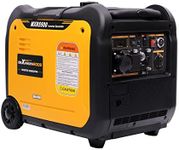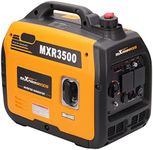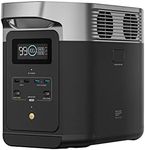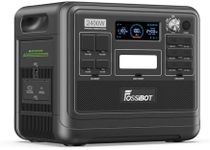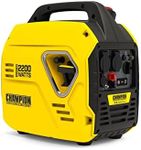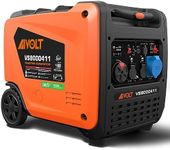Buying Guide for the Best Generator For Food Truck
Choosing the right generator for your food truck is crucial to ensure that all your appliances and equipment run smoothly. A generator provides the necessary power to operate everything from refrigerators to cooking equipment, and selecting the right one can make a significant difference in your food truck's efficiency and reliability. When choosing a generator, consider the power requirements of your equipment, the noise level, fuel type, and portability. Understanding these key specifications will help you make an informed decision that best suits your food truck's needs.Power Output (Wattage)Power output, measured in watts, indicates how much electricity the generator can provide. This is important because it determines whether the generator can handle the combined power needs of all your food truck's appliances. Generators come in various wattage capacities, typically ranging from 2,000 watts to over 10,000 watts. To choose the right one, calculate the total wattage of all the equipment you plan to run simultaneously. It's wise to select a generator with a slightly higher wattage than your total requirement to ensure it can handle any power surges or additional equipment in the future.
Fuel TypeGenerators can run on different types of fuel, including gasoline, diesel, propane, or natural gas. The fuel type affects the generator's efficiency, cost of operation, and availability of fuel. Gasoline generators are common and easy to refuel but may not be as fuel-efficient as diesel generators, which are more durable and economical for long-term use. Propane generators offer cleaner emissions and longer shelf life for the fuel, while natural gas generators are convenient if you have access to a natural gas line. Consider the availability and cost of fuel in your area, as well as your environmental preferences, when choosing the fuel type.
Noise LevelThe noise level of a generator is measured in decibels (dB) and is important for maintaining a pleasant environment for your customers and complying with local noise regulations. Generators can range from very quiet (around 50 dB) to quite loud (over 80 dB). If your food truck operates in a busy or residential area, a quieter generator is preferable to avoid disturbing your customers and neighbors. Look for generators labeled as 'quiet' or 'inverter' models, which are designed to operate more silently.
PortabilityPortability refers to how easy it is to move the generator. This is important for food trucks that may need to relocate frequently or have limited space. Portable generators are typically equipped with wheels and handles for easy transport. Consider the weight and size of the generator in relation to your food truck's available space and how often you plan to move it. A compact and lightweight generator is ideal for food trucks with limited space or those that frequently change locations.
Run TimeRun time indicates how long a generator can operate on a full tank of fuel. This is crucial for food trucks that need to run continuously throughout the day. Generators with longer run times reduce the need for frequent refueling, allowing you to focus on serving customers. Run time can vary significantly, with some generators offering as little as 4 hours and others up to 12 hours or more. Consider your typical operating hours and choose a generator that can run for the duration of your business day without needing a refill.
